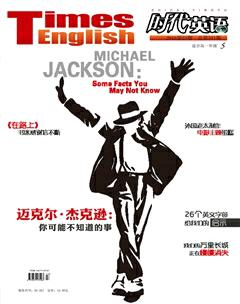词汇短语园地2
1. reduce vt. 缩减;减少;降低
The new law will reduce the pollution of rivers.
新法将减少河流污染。
(1) reduce by 减少了多少
Production was reduced by twenty percent.
生产减少了20%。(即减少到80%)
(2) reduce to 减少到多少
The number of employees was reduced to 25.
雇员人数减少到25人。
reduction n. 减少;缩小;降低
2. disagree vi. 不同意;不一致;不相符
Even friends disagree sometimes.
即使是朋友,有时也有分歧。
(1) disagree (with sb) about/on/over sth 就某事不同意(某人)
He disagrees with his parents on many things.
他在多数事情上都与父母意见不一致。
I disagree with you about this thing.
对于这件事我跟你意见不同。
(2) sth disagree with sb(尤指食物对某人)不适宜;
Ice cream always disagrees with me.
我吃了冰淇淋总是感到不舒服。
Do these dishes agree with you?
这些菜合你的口味吗?
(3) disagree with sth 不赞成;反对
I disagree with violent protests.
我不赞成暴力抗议。
These two reports of the accident disagree with each other.
这两篇关于事故的报道不一致。
3. recognise vt. 认识;认知;认出
(1) recognise sb/sth (by/from sth) 认识;认出;辨别出
I recognised her by her red hair.
我从她的红头发认出了她。
Do you recognise this tune?
你能听出这是哪支曲子吗?
(2) recognise sth as sth 承认;意识到
Drugs were not recognised as a serious problem at that time.
那时候还没有把毒品看成一个严重问题。
(3) be recognised (as sth) 赞赏;看重;公认
The book is now recognised as a classic.
这本书现在是一部公认的经典。
(4) recognise that从句
We recognised that the task was difficult.
我们意识到这个任务很困难。
注意:“我认识你三年了。”不能翻译为“I have recognised you for three years.”应把recognised改为known。
4. danger n. 危险
(1) 泛指一般意义的“危险”时,通常是不可数名词。表示做某事的危险或发生某情况的危险等时,通常后接of (doing) sth,而不接不定式。
Is there any danger of fire?
有发生火灾的危险吗?
The children didnt realize the danger of swimming in the river.
孩子们没有意识到在河里游泳的危险。
注意:通常不说“...the danger to swim in the river”。
(2) in danger (of ) 处于(……的)危险中
He is in danger of losing his life. 他有生命危险。
Were in danger of being hit by a stone.
我们有被石头砸的危险。
(3) 表示“造成危险的原因、危险的人”或指“威胁、危害”时,是可数名词。
He is a danger to society.
他对社会是个危险人物。
Do you know the dangers of smoking?
你知道吸烟的危害吗?
out of danger 脱离危险
5. connection n. 联系;关系;关联;连接
(1) in connection with sb/sth 与……有关
He was arrested in connection with this affair.
他因与此事件有关而被拘留。
(2) connection with sth; connection between A and B
(两种事实、观念等的)联系;关联
He refused to admit any connection with the bombing.
他否认与那起轰炸事件有任何关系。
Scientists have established a connection between heart disease and food.
科学家证实心脏病与食物有关。
(3) connection to sth 联结;接通;连接
Connection to the gas supply has been delayed for three days.
接通煤气延迟了三天。
connect vt. 连接;联系;关联
connect...with...(使)连接;联结
connect...to... 使(电源、水等)联结;接通
be connected with... 与……有联系
6. likely adj. 可能的
(1) be likely to do... 很可能……
Tickets are likely to be expensive.
入场券可能很贵。
She is not likely to come next month.
她下月很可能不来。
(2) Its likely that从句
Its more than likely that the thieves dont know how much it is worth.
盗贼很可能不知道此物的价值。
7. affect vt. 影响;对……有坏影响
(1) affect表示一般性的“影响”(不分好坏)
This article will affect my thinking.
这篇文章将会影响我的思想。
Does this change affect your plan?
这个变化影响了你的计划吗?
(2) affect也表示“产生不良影响”
Smoking affects health. 吸烟影响健康。
The noise from the street affected our work.
街上的嘈杂声影响了我们的工作。
8. ban vt. & n.(明令)禁止;取消
The government has banned the use of chemical weapons.
政府已经禁止使用化学武器。
There is a ban on smoking in the theatre.
这剧院内禁止吸烟。
ban sb from (doing) sth
He was banned from (attending) the meeting.
他被取消了出席会议的资格。
9. related to 有关系的;有关联的
The traffic accident might be related to the rain at that time.
这起交通事故可能与那时的雨有关。
Sometimes, crime is related to drug abuse.
犯罪有时与滥用药品有关。
relate v. 联系;叙述
relate...to... 把……与……联系起来
relate... (to sb)(向某人)叙述
She relates her childhood experiences in the first chapters.
在开始的几章中,她描述了自己童年的经历。
relate to sth/sb 涉及;谈到;与……相关
The second paragraph relates to the situation in England.
第二段谈到英格兰形势。
10. break into 破门而入;强行闯入;突然开始
We had to break into the house because we had lost our key.
因为我们弄丢了钥匙, 所以不得不破门而入。
She broke into tears when I told her the news.
当我告诉她那个消息时,她一下子哭起来。
break in 闯入;打断;插嘴
break down 出故障;坏掉;失败
break out 突然开始;爆发
break up 粉碎;破碎;结束
11. belong to 属于(不用于进行时和被动语态)
Where do these plates belong to? 这些盘子该放在哪里?
(1) belong to sb 属于某人;归某人所有
This watch belongs to me.
这块表是我的。
(2) belong to sth 是……的成员;是(某族类或纲目)
的一部分
Have you ever belong to a political party?
你加入过什么政党吗?
Lions and tigers belong to the cat family.
狮子和老虎属于猫科。
12. give up 戒除;放弃
They gave up without a fight. 他们不战而降。
You ought to give up smoking. 你应该戒烟。

